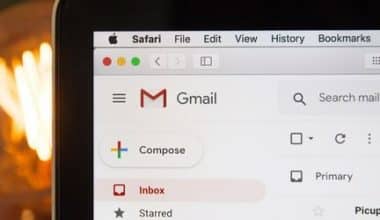Starting a record label requires some forethought. You don’t necessarily need plenty of money to start a record label, but along the way, you’ll need to get your hands on investors. With the evolution going on in the music industry, you’ll wonder how a record label makes its money. Find out more in this guide.
What Is A Record Label?
A record label is a brand that represents one or more artists’ music. It handles the music business, such as signing contracts with and promoting musicians, as well as recording, publishing, and distributing their music in physical and electronic formats. While all of these operations are normally performed in-house at a large record company, independent record labels frequently outsource tasks such as publication and distribution to other organizations.
What does it take to Start a record label?
You don’t need a lot of money to start a modest independent record label. In reality, you can start a label with little more than a name and a social media presence. Once you’ve begun working with artists, you might look for an investor to help fund your business effort.
How to Start a Record Label
#1. Register Your Record Label Business Name
What will the name of your record label be? It’s critical that your label has a distinct business name, so do your homework before making a decision. Examine state registers, the federal trademark database, and even Google for other firms with the same name. You should also check to see if the name is available as a website domain, even if the organization operates under a different brand.
You’ll want to protect your brand once you’ve decided on a name for your record company. By filing a trademark, you ensure that your brand name remains distinct from the competition.
What exactly is a trademark? A registered trademark in the United States grants you the exclusive right to use your company name in connection with the goods and services you identify when you register. If a competitor infringes on your trademark and uses your name, you can enforce it by filing a case in federal court.
#2. Personalize Your Indie Label
Your name is the beginning of your indie label brand, but it is not the end. Audiences recognize companies visually, so creating a logo to represent your record company is essential.
Because your logo will visually represent your record label to the market, it should express your label’s music, values, and vision. If you are artistic, you can create your own logo, or you can use one of the many logo creation tools and services available.
#3. Decide on a Business Structure
One of the things you should consider when you want to start a record label is the organization of your brand. How will your record label be organized? Will you be the lone proprietor of your tiny firm, or will your independent label be a collaboration? Who is legally obligated to protect the brand?
When it comes to building the structure of your record label, you have several options; however, the three most typically employed by tiny independent firms are sole proprietorships, partnerships, and limited liability companies. Knowing how these three work will help you make a better decisions.
#4. Investigate Major Label Competition
Understanding your competitors is critical for any small business owner. Brands will compete in the record industry against large record companies as well as other independent record labels. Investigate the competition to discover what other labels are doing that you want to mimic and how you can make your indie label distinctive and stand out from the crowd.
#5. Select a Niche and Research Your Target Market
If you want your indie record label to stand out from the crowd, you must first identify a business specialty and target market. If you try to appeal to the whole market, your little brand will quickly become lost in the mass of independent labels. What genre of music will you concentrate on? Will you sign blues singers, rappers, or folk musicians? Will you cater to casual music listeners, teenagers, or foreign fans?
#6. Establish a Business Bank Account
Open a business bank account before your company begins sending or receiving money. A business bank account adds a professional touch to your small business and helps keep your record label legally compliant by keeping your business and personal finances separate.
#7. Purchase Required Equipment
What will you require to create your own record label? You can outsource your music’s publishing and distribution, as well as rent studio time to make an album. Some musicians also own their own instruments.
#8. Establish Your Music Label’s Online Presence
Every successful business, including your music label, requires an internet presence. It is free to establish an online presence. Begin by creating an email account for your indie label and creating a social media presence on platforms such as Facebook, Twitter, and Instagram.
#9. Obtain Licenses and Permits
Will you require any permits or licenses to run your record label? The requirements for businesses to obtain various sorts of permits and licenses vary by state and area, so the answer involves some research on the part of each small business owner. Check your local business standards and apply for any necessary licenses for your indie record label.
#10. Select a Location
Where will your record label be based? While you have the option of establishing your own independent studio in a rented facility, conducting your small business from home can save you money. While conducting your business from home or a shared workspace, you can hire studio space and arrange professional meetings at other locations.
#11. Obtain Commercial Insurance
It is always critical to obtain the appropriate types of insurance for your small business. Insurance coverage protects your business in the event of a fire, theft, natural disaster, crisis, or even a lack of sales. It is critical to determine your needs before purchasing the appropriate types of insurance for your small business.
#12. Take Care of Your Record Label Taxes
Your record label, like any other small business, will be subject to a number of municipal, state, and federal taxes. Property taxes, state and federal income taxes, sales taxes, and even employment taxes may be due. Register for a Federal Tax ID and any necessary state tax IDs, and protect your company by researching the applicable taxes in your area.
#13. Join Trade Organizations and Societies
To help your new music label succeed, you should expand your networking prospects by joining relevant trade organizations and associations. Members not only benefit from increased networking but are frequently invited to free industry events where they may learn more about the music business.
#14. Install a Business Phone System
Your next client may be just a phone call away. As a result, it is critical for every small business owner to set up a business phone system for their organization. You never know when the next big independent artist will try to reach out to you.
#15. Form a Group
Nobody achieves success on their alone, and even a solitary proprietor should assemble a team of specialists to assist with the launch of their independent record company. To be effective, your team does not need to physically gather. You can collaborate digitally with specialists from all over the world.
#16. Promote Your Label
If you want the world to know about your record label, you must market it. You can employ a marketing agency to advertise your company, or you can do it yourself. Your tiny label may flop and fail to flourish if you do not market it. Even after you sign musicians, create albums, and distribute digital music, promotion will remain an important aspect of your record label.
#17. Encourage Groups to Participate
How do you persuade musicians to entrust their musical careers to your label? There is no product and no operating label if artists and ensembles do not record music for you. When signing legal contracts and a recording deal, even a new label will most likely need to work with artists’ managers and lawyers, so you’ll want representation and legal guidance as well.
#18. Seek out Investors
How are you going to fund your record label? It may not cost much to launch your business, but running a record label does. You will need to pay artists, and record charges and cover the costs of publication, marketing, and distribution, among many other expenses associated with running a small business. Most small business entrepreneurs are unable to fully fund all of these costs on their own, so they look for at least one person to invest in their company.
#19. Release your music
Music Distribution used to be a hassle for anyone who wasn’t signed to a major label, but thanks to online music and streaming platforms like Apple Music and Spotify, anyone can now release music.
How to Start a Record Label With No Money
Even if they don’t have any money, anyone can start a record label. You’ll eventually need funding to build your firm, but you can save a lot of money when you start your indie label. Your label can be considered legitimate once you’ve chosen a name and developed a social media presence, both of which are free.
Networking with artists is also free, and you might be able to land your first contract without spending a dollar. If you still don’t have enough money when it comes time to record music, you might look for an angel investor to assist your business in expanding.
Are Record Labels Making Money?
Publishing recordings have expenses, and a record company must pay its artists, cover recording costs, and cover publication charges before it can sell a record. These expenses must then be covered by music sales before the tiny firm may produce a profit. While a record company can eventually become a viable business, don’t expect to see profits right away.
How Do Record Labels Make Money?
In general, every piece of music has two portions that can be commercialized.
i. The Structure
ii. The Master Track
Music labels typically profit from master recordings by exploiting them for general public consumption and licensing the use of the master recording in commercial ventures.
#1. Music sales
The fundamental function of a label is to capitalize on the music of the artists they sign. The artist will frequently assign the master rights to their songs to the label, and the label will be in charge of reproducing, distributing, and marketing these recordings. Previously, this was done mostly through CDs and downloads but has switched to streams for the most part since the advent of Spotify, Apple Music, Tidal, and others. Because CD sales and downloads are so low these days, let’s concentrate on streams for the time being.
#2. Music Performances
Because of the significantly lower pay rate for streaming music compared to CD sales or downloads, live concerts have now become the primary source of income for record labels. Before streaming, labels would send their musicians on tours to encourage album sales. Labels now view album releases as a way to promote their artists’ tours. The label assists in the organization and promotion of the tour and profits from ticket sales. Ticket sales are handled similarly to CD sales, downloads, and streams in that the label maintains a portion of the cash while delivering the agreed-upon share to the contracted artist.
#3. Licensing Master
Each new song recording is a new master of the same song. For example, suppose John develops a song named “Best Song Ever” and tapes a demo of it. That demo is the master version of “Best Song Ever.” Someone on Kane Brown’s crew hears “Best Song Ever” and thinks it’s great for Kane’s upcoming album. Kane records “Best Song Ever” with his band and his own vocals. This new recording is treated as a distinct master for the same song. Kane Brown has a label contract with RCA Nashville, thus, he submits the song’s master rights to his label, which releases it as part of his new album.
Later on, someone on Coca-Cola’s advertising team hears “Best Tune Ever” and decides it’s the perfect song for their upcoming national TV commercial. They wish to use Kane Brown’s recording of the song. For a price, RCA Nashville can grant them a license to utilize the master track for the TV commercial. The label will collect the charge from Coca-Cola, keep their portion, and then forward the singer’s portion to him/her. The amount of this percentage is determined by the contract negotiated between the two parties.
Do record labels pay you?
When a song is reproduced and sold on CD, the record label will pay the songwriter a mechanical royalty. When you’re signed to a record label or use a music distribution service, the label or service will handle collecting and disbursing your Mechanical Royalties.
Is starting a record label worth it?
In my opinion, starting a record label is one of the best ways to gain practical experience in the music business. You will be responsible for administrative and creative tasks such as A&R (artist discovery and contract negotiation), as well as legal matters, marketing, and general project management.
How do small record labels make money?
If you own a small record label, you can make money through the following steps mentioned below.
- Streaming and Sales
- Royalties
- Event Marketing
- Artist Management
- Hosting Celebrations
- Venue Ownership
- Publishing and Licensing
- Ticket Sales
Do independent record labels pay you?
Even though they will always find you paid gigs, their commission rate is typically around 20%.
Is it hard to get noticed by a record label?
It’s more challenging than ever to get the attention of major labels like independent record labels due to the proliferation of self-published music on the internet. Once upon a time, all you needed to get the attention of an A&R or label scout was talent and potential.
What makes a record label successful?
To be successful, it’s important for a small label to specialize in one musical genre. If a small label releases music across multiple genres, its resources will be spread thin, making it less likely that it will master any one of them. Its marketing and promotion efforts will inevitably be hampered because of this.
Is owning a record label profitable?
While the potential for profit is there, independent record labels have a particularly tough time breaking even. The major labels are all profitable because they have the most popular and well-known artists signed to their rosters and because of the business practices they have put in place to ensure that the revenue stream continues unabated.
In Conclusion,
You can start a record label with little or no money at all. By following the guidelines in this article, you’ll just be steps away from owning your own record label.
How To Start A Record Label FAQs
How much is it to start a record label?
The record label industry is huge, and there is plenty of room to market and distribute music worldwide. A record label’s average launch cost ranges from $200 and $50,000. However, the average cost for large labels might range between $100,000 and $500,000.
Is it a good idea to start a record label?
Starting a record label is one of the most beneficial things you can do to improve your knowledge of the music industry. You will be responsible for A&R (identifying and signing talented musicians), legal issues, promotion, and ongoing project administration.
Is it free to start a record label?
You don’t need a lot of money to start a modest independent record label. In reality, you can start a label with little more than a name and a social media presence. Once you’ve begun working with artists, you might look for an investor to help fund your business effort.






